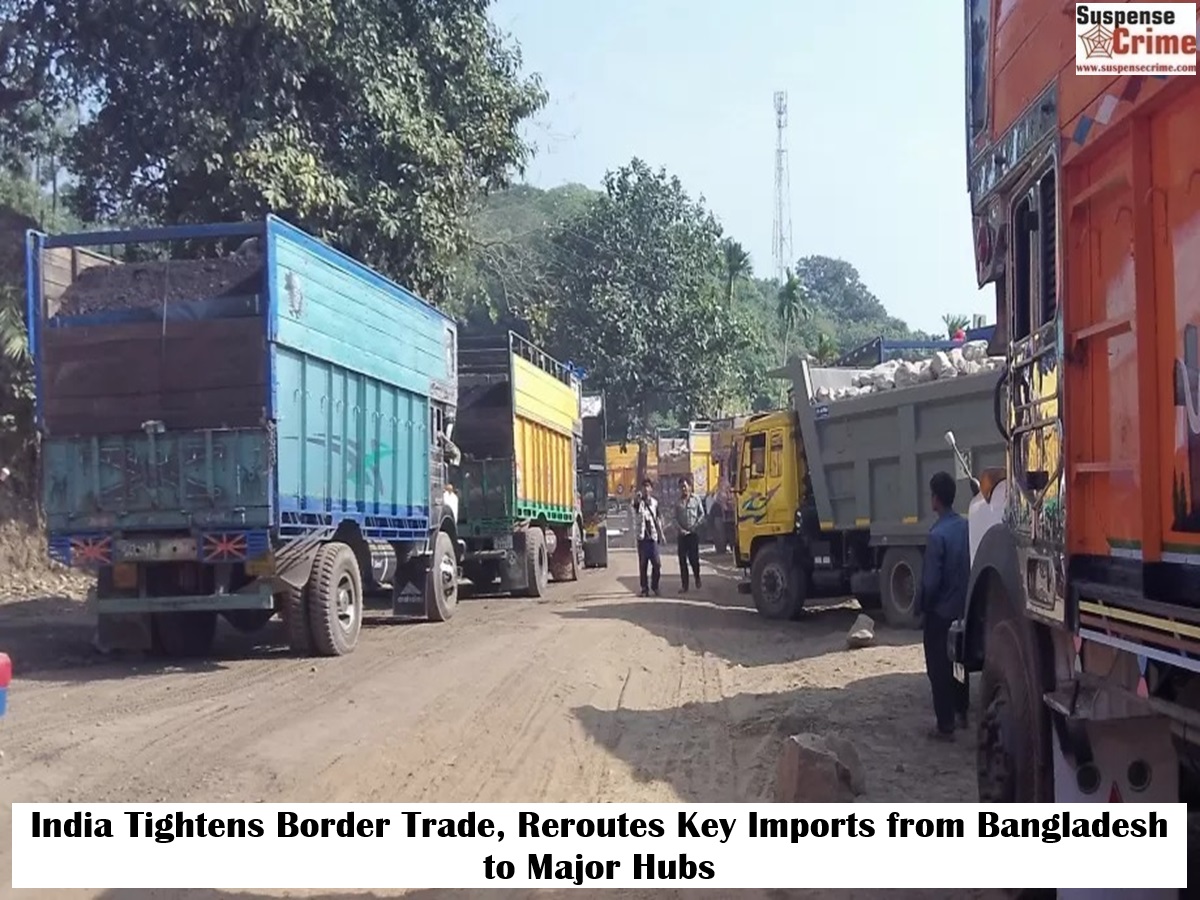
India has introduced a significant change to its trade policy with Bangladesh, restricting the import of several key commodities, including jute, certain fruits, and steel, through smaller land customs stations. This move is designed to channel trade through larger, more secure checkpoints, aiming to curb smuggling and improve regulatory oversight.
The Directorate General of Foreign Trade (DGFT) issued a notification amending the nation's import policy. Effective immediately, the following items from Bangladesh are no longer permitted to enter India via Land Customs Stations (LCS):
- Jute and raw jute products
- Betel nuts (areca nuts)
- Fruits, including apples, mandarins, oranges, grapes, lemons, and pomegranates
- Milk and milk products
- Most common iron and steel products
It is crucial to understand that this is not a complete ban on these goods. Instead, the policy reroutes their import away from the smaller, less-equipped Land Customs Stations. Imports of these items can continue without interruption through the country's major, modernized Integrated Check Posts (ICPs), such as the bustling Petrapole-Benapole border crossing.
The primary difference is in infrastructure. ICPs are large-scale, modern facilities equipped with advanced customs clearance, immigration, quarantine, and security systems. In contrast, the numerous smaller LCS along the porous India-Bangladesh border have limited capabilities, making them more susceptible to informal trade and the smuggling of goods without proper duties being paid.
By mandating that these high-volume or sensitive goods pass through ICPs, the Indian government aims to:
- Strengthen Border Management: Ensure all goods are properly inspected and documented.
- Prevent Tax Evasion: Guarantee that correct customs duties are levied and collected.
- Enhance Quality Control: Uphold safety and quality standards, especially for food and agricultural products.
This policy shift will require importers to adjust their logistics, potentially increasing transportation time and costs as they redirect shipments to the approved ICPs. However, the government sees it as a necessary step to formalize trade, enhance national security, and create a more transparent economic corridor between the two neighboring countries.
Read More: BJP Announces 4 Candidates for Rajya Sabha from Maharashtra: Athawale and Tawde Lead the List

 Share
Share_722031383_100x75.jpg)



